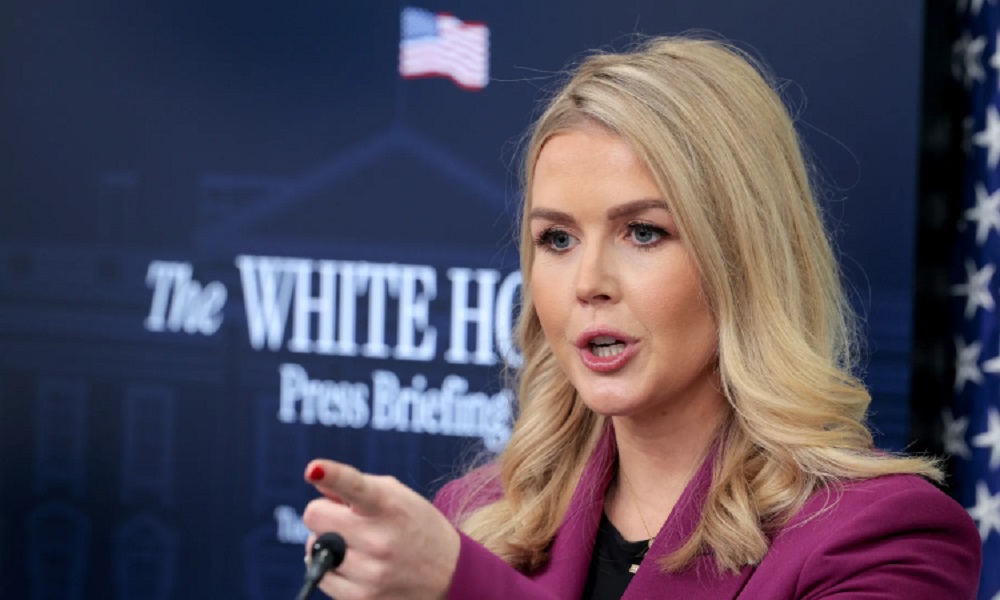Chinese Lace, American Embarrassment: A Red Dress Sparks Diplomatic Drama
A White House spokesperson’s outfit triggers a political stir amid rising U.S.-China trade tensions.

Watan-In an unexpected turn of events, a red dress worn by White House Press Secretary Caroline Leavitt became the center of a heated political and diplomatic debate between Washington and Beijing. The dress, which drew media attention during an official press conference, wouldn’t have caused such a stir—had a senior Chinese diplomat not revealed that the garment originated from China, specifically from a factory in the city of Mabu.
The controversy unfolded as the trade war between the two countries intensified, following President Donald Trump’s announcement of new tariffs on Chinese imports. While the White House administration was publicly criticizing Chinese products, the red dress surfaced as an ironic and embarrassing contradiction.
Zhang Qichen, the Chinese Consul General in Indonesia, jumped into the debate with a sarcastic post on platform X (formerly Twitter). He shared a photo of the dress and commented:“We’re used to being blamed, but buying Chinese products during a trade war? That I don’t understand!”

Thread of Tension: How a Chinese Lace Dress Stitched a U.S.-China Diplomatic Stir
Zhang backed his remarks with screenshots from Weibo showing details about the factory believed to have produced the dress, confirming that the lace was made by a well-known Chinese company. He added:
“Mabu Town, you are the source of beauty for Ms. Caroline and women around the world!”
The issue soon took on a diplomatic tone. Zhang later posted a video showing other clothing items worn by the spokesperson, claiming that “China produces 70% of the world’s lace,” a statement some U.S. officials interpreted as subtle political trolling of the administration’s stance.
What began as a minor detail in a formal appearance evolved into a satirical political message, exposing what some critics called a double standard in the U.S. administration’s dealings and leaving it in an awkward position before the public eye.
So the question remains:Could “Chinese lace” become a new pawn in the U.S.-China trade rivalry? And is Beijing now leveraging small details to send political messages beyond formal platforms?






